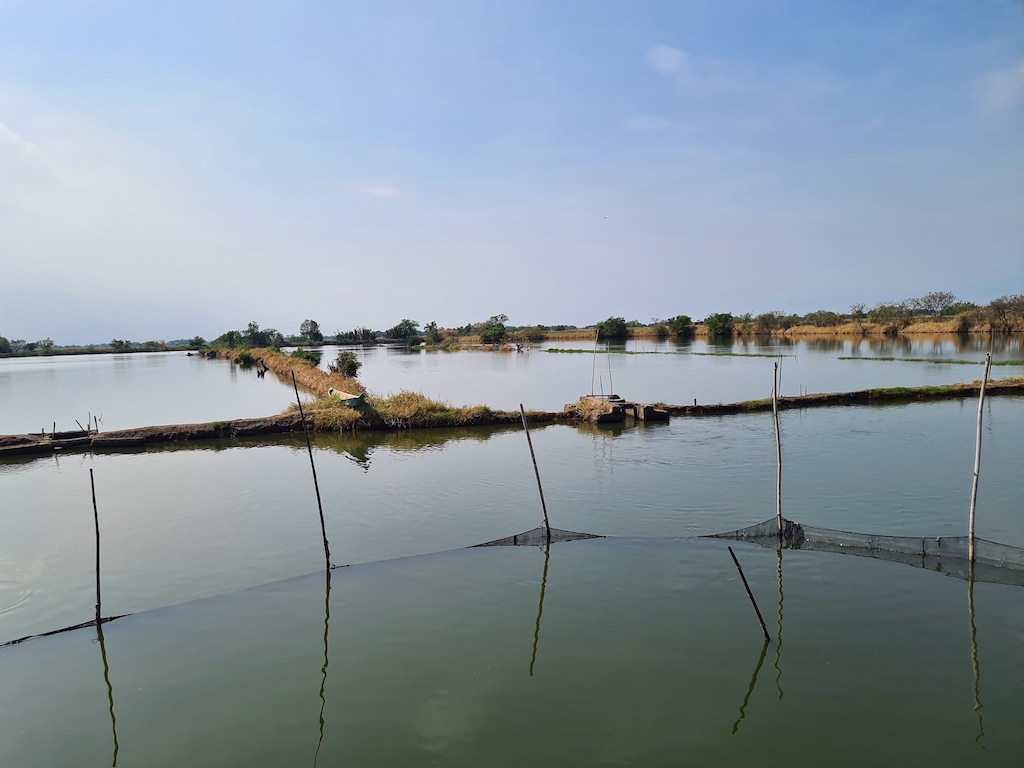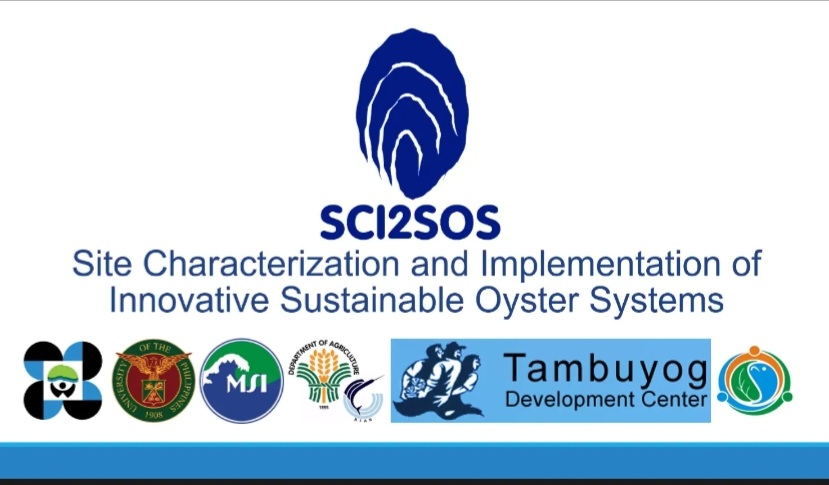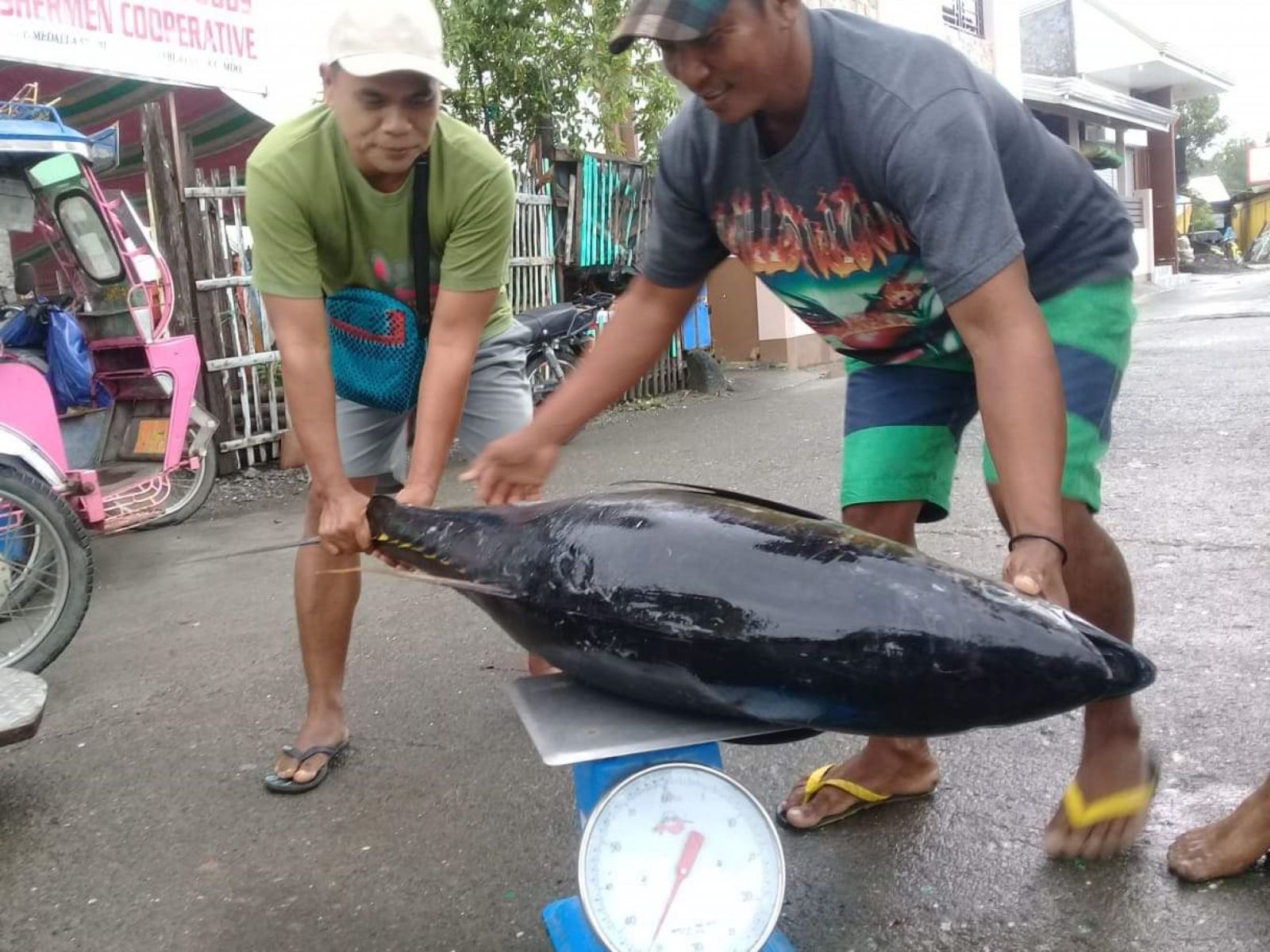Campaigns and Projects
Thematic Activities
There is the need to mainstream fishery and coastal resource management as a vital component of a holistic approach to managing the impacts of climate change. This is because in a situation where climate change is likely to continue in the long term, maintaining biodiversity and healthy ecosystems not least in the coastal zone provide the means for adapting to climate change. Therefore, measures to reduce greenhouse gas emissions should go hand in hand with measures to improve the capacity of coastal ecosystems and communities to adapt to climate change impacts.
Aquaculture sub-sector has significantly contributed in employment generation and livelihood development. In 2008, aquaculture production is 2.4 million metric tons, 1.6 million of which is seaweeds. The value aquaculture for the same year is almost 82 billion pesos. There are about 230,000 operators in the aquaculture industry''''s estimated 500,000 fishers are seaweed farmers making this industry a significant alternative livelihood opportunity. As a general rule, one hectare of fishpond generally supports 1 fishpond worker.
Tambuyog is steadfastly pushing for the establishment of community based social enterprises owned, operated and/or managed by the fishers themselves and their partners not only to increase household incomes but more importantly to strengthen the position of fishers in their right to fishing areas. We are also guaranteeing the enhanced participation and promotion of entitlements of women a vital part of sustainable fisheries by addressing their gender needs and interests, including reproductive health concerns and domestic violence
The Women in Fisheries Initiatives covers advocacy, networking and capacity building related to women's rights and welfare, in the context of sustainable fishing industry. It shall provide training to women fishers related to women's empowerment, women's participation and entitlements, e.g. participation in governance, organizational management and development, tenurial rights in fisheries, and health, productive, reproductive, and educational rights. This program ensures that women are equally represented in FARMCs, co-management bodies and fishers' organizations, and that policies and programs of government, NGOs, and POs are gender fair.
The Project aims to help the Local Government operate their respective Community Fish Landing Centers. This Landing Centers will serve as fishery resources management and incubation hubs. Provision of technical support, requisite linkages and capacities for its partner people’s organizations (POs), Municipal Fisheries and Aquatic Resources Councils (MFARMCs) and the Local Government Units (LGUs).will be conducted.
The COASTALFISH project intervention will pilot the development and operationalization of at least four (4) CFLC facilities in 6 Municipalities (Municipalities of Agdangan, Macalelon and Mulanay in Tayabas Bay and Municipalities of Alabat, Perez, and Quezon in Lamon Bay) to serve as a venue for sustainable and disaster resilient resource management, development of electronic fish catch documentation and traceability system (ECDTS), and social enterprise development.
Fish Right is a partnership between the Government of the Philippines and the U.S. Agency for International Development to improve marine biodiversity and the fisheries sector in three key ecological areas. The program will be implemented by the Coastal Resources Center at the University of Rhode Island (URI) in collaboration with a team of core implementing partners, which were selected for their complementary expertise. This program was developed through a consultative process that involved all implementing partners as well as local stakeholders and government representatives.
A project to establish a broad network of small scale fisherfolk with a common policy agenda and a strong focus on Illegal, Unreported, Unregulated Fishing (IUUF) measures. This project is implemented in partnership with Oceans5.
The project will help develop a sustainable supply system for oysters through the partnerships among the University of the Philippines - Marine Science Institute, the Bureau of Fisheries and Aquatic Reform, the Agriculture Sustainability Initiatives for Nature, Inc. and the Tayabas fisherfolks community partners of Tambuyog Development Center.
The project is aligned with the goals of the Department of Science and Technology's (DOST) Science for Change Program's Collaborative Research and Development to Leverage Philippine Economy (CRADLE) and the action program of the "Industry Roadmap: Processed Bivalve Molluscs" of the Department of Trade and Industry (DTI),
The Southeast Asia Fish for Justice Network (SEAFish) is a group of fisherfolk federations and non-government organizations bound together by its Pool of Consensus (PoC) that proffers its perspective and platform on fisheries and coastal concerns in the region along with its application to individual member countries and in the global arena. This PoC contained its analysis and standpoint on: fisheries; (shrimp) aquaculture; community-based coastal resources management (CBCRM); trade liberalization, subsidies, trade rules and technical barriers to trade in the context of the World Trade Organization (WTO); access agreements; eco-labelling and certification; and multilateral financing institutions and multilateral development aid packages.
The project protected farmed shrimp by improving policies and practices pertaining to farmed shrimp health and welfare by developing a platform for advocacy allowing participation of key stakeholders among SEAFISH members as well as supply chain actors. The project launched awareness campaign, conducted lobbying activities with key government agencies, and engaged the concerned private sector stakeholders.
Improvements of the market and welfare standards for shrimp, as well as responding to policy gaps, were initiated when Tambuyog started this project. Continuous promotion and lobbying to relevant government agencies and concerned shrimp producers will ensure that concrete changes in the written policies of the country and behavioral changes in farm practices are carried out. Consistent with its objectives, the project reached a number of people informed and aware on the issues of farmed animal health and welfare. They are expected to become potential addition to the animal protection movement.
A multi-stakeholder / multi-actor partnership (MAP)-driven project that connects the diverse stakeholders along the value chain, as well as those within decision-making platforms at the local, sub-national, and national levels.
The project's objective of improving governance at the local, national and regional levels is aligned with the small tuna handliners’ interest in securing the yellowfin tuna resource in the long term, as sustainable fisheries management in the Western and Central Pacific would maintain yellowfin tuna at healthy levels and prevent overfishing. This would maintain MSC certification beyond 2023 and allow for the customary recertification by the MSC after 5 years in 2026, ensuring the target group access to high value markets in the long term.













 All Rights Reserved
All Rights Reserved